第62章
[23]T/HUS, if a cause be defined, , it is easy to observe, that is synonymous to . In like manner, if a cause be defined, , this is liable to the same objection. For what is meant by these words, ? Had it been said, that a cause is after which
; we should have understood the terms. For this is, indeed, all we know of the matter. And this constantly forms the very essence of necessity, nor have we any other idea of it.
[24]S/INCE all reasoning concerning facts or causes is derived merely from custom, it may be asked how it happens, that men so much surpass animals in reasoning, and one man so much surpasses another? Has not the same custom the same influence on all?
We shall here endeavour briefly to explain the great difference in human understandings: After which the reason of the difference between men and animals will easily be comprehended.
1. When we have lived any time, and have been accustomed to the uniformity of nature, we acquire a general habit, by which we always transfer the known to the unknown, and conceive the latter to resemble the former. By means of this general habitual principle, we regard even one experiment as the foundation of reasoning, and expect a similar event with some degree of certainty, where the experiment has been made accurately, and free from all foreign circumstances. It is therefore considered as a matter of great importance to observe the consequences of things; and as one man may very much surpass another in attention and memory and observation, this will make a very great difference in their reasoning.
2. Where there is a complication of causes to produce any effect, one mind may be much larger than another, and better able to comprehend the whole system of objects, and to infer justly their consequences.
3. One man is able to carry on a chain of consequences to a greater length than another.
4. Few men can think long without running into a confusion of ideas, and mistaking one for another; and there are various degrees of this infirmity.
5. The circumstance, on which the effect depends, is frequently involved in other circumstances, which are foreign and extrinsic. The separation of it often requires great attention, accuracy, and subtility.
6. The forming of general maxims from particular observation is a very nice operation; and nothing is more usual, from haste or a narrowness of mind, which sees not on all sides, than to commit mistakes in this particular.
7. When we reason from analogies, the man, who has the greater experience or the greater promptitude of suggesting analogies, will be the better reasoner.
8. Biases from prejudice, education, passion, party, &c. hang more upon one mind than another.
9. After we have acquired a confidence in human testimony, books and conversation enlarge much more the sphere of one man's experience and thought than those of another.
It would be easy to discover many other circumstances that make a difference in the understandings of men.
[25]P/LUTARCH, in vita Catonis.
[26]N/O I/NDIAN, it is evident, could have experience that water did not freeze in cold climates. This is placing nature in a situation quite unknown to him; and it is impossible for him to tell
what will result from it. It is making a new experiment, the consequence of which is always uncertain. One may sometimes conjecture from analogy what will follow; but still this is but conjecture.
And it must be confessed, that, in the present case of freezing, the event follows contrary to the rules of analogy, and is such as a rational I/NDIAN would not look for. The operations of cold upon water are not gradual, according to the degrees of cold; but whenever it comes to the freezing point, the water passes in a moment, from the utmost liquidity to perfect hardness. Such an event, therefore, may be denominated , and requires a pretty strong testimony, to render it credible to people in a warm climate: But still it is not , nor contrary to uniform experience of the course of nature in cases where all the circumstances are the same. The inhabitants of S/UMATRA have always seen water fluid in their own climate, and the freezing of their rivers ought to be deemed a prodigy: But they never saw water in M/USCOVYduring the winter; and therefore they cannot reasonably be positive what would there be the consequence.
[27]S/OMETIMES an event may not, ,
to be contrary to the laws of nature, and yet, if it were real, it might, by reason of some circumstances, be denominated a miracle; because, in , it is contrary to these laws. Thus if a person, claiming a divine authority, should command a sick person to be well, a healthful man to fall down dead, the clouds to pour rain, the winds to blow, in short, should order many natural events, which immediately follow upon his command; these might justly be esteemed miracles, because they are really, in this case, contrary to the laws of nature. For if any suspicion remain, that the event and command concurred by accident there is no miracle and no transgression of the laws of nature. If this suspicion be removed, there is evidently a miracle, and a transgression of these laws; because nothing can be more contrary to nature than that the voice or command of a man should have such an influence. A miracle may be accurately defined,
. A miracle may either be discoverable by men or not. This alters not its nature and essence. The raising of a house or ship into the air is a visible miracle. The raising of a feather, when the wind wants ever so little of a force requisite for that purpose, is as real a miracle, though not so sensible with regard to us.